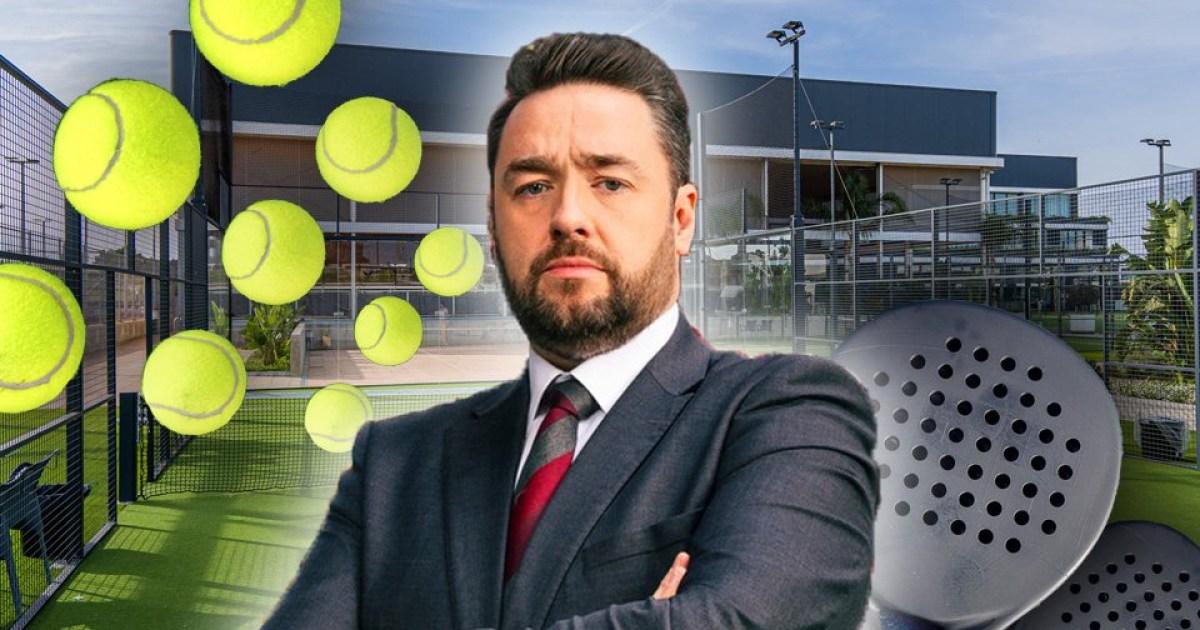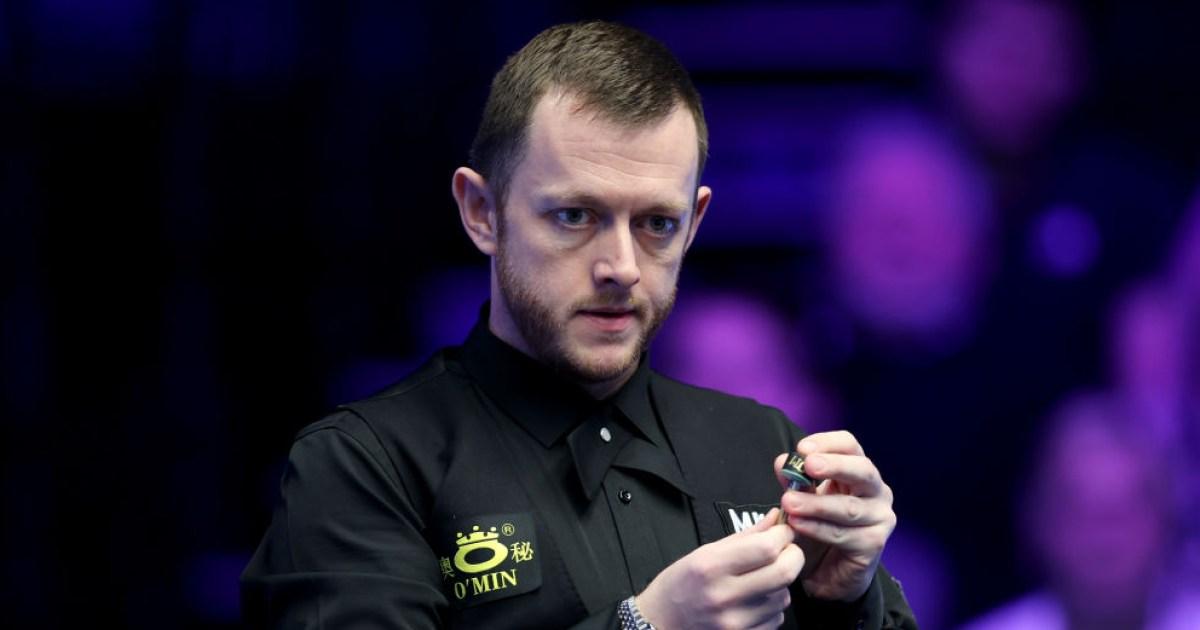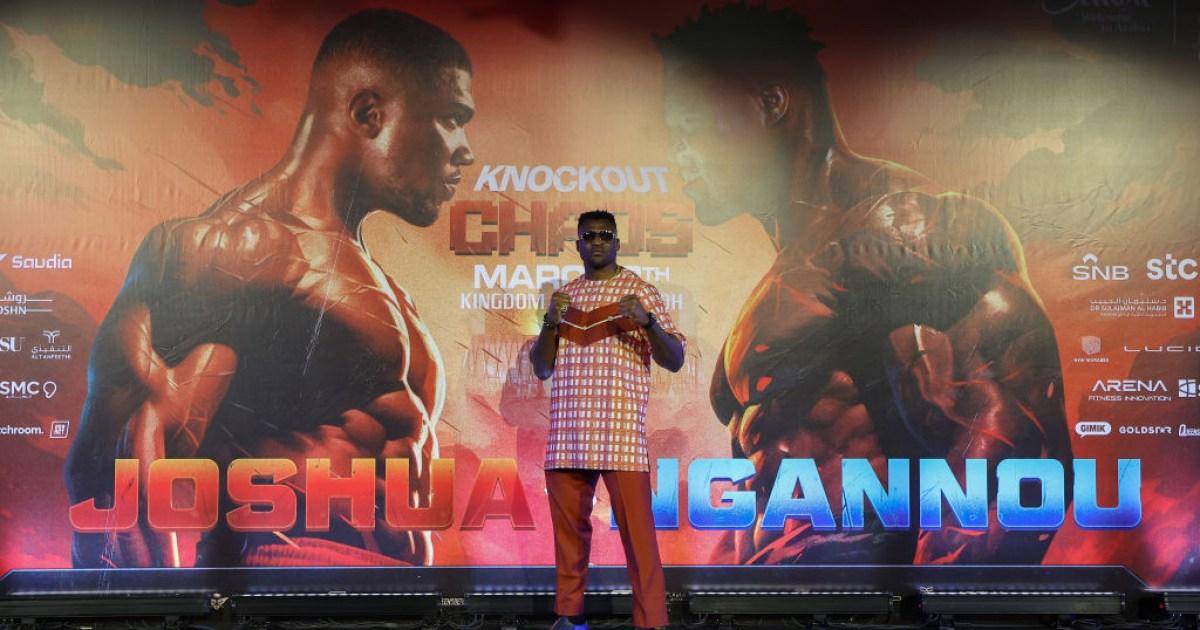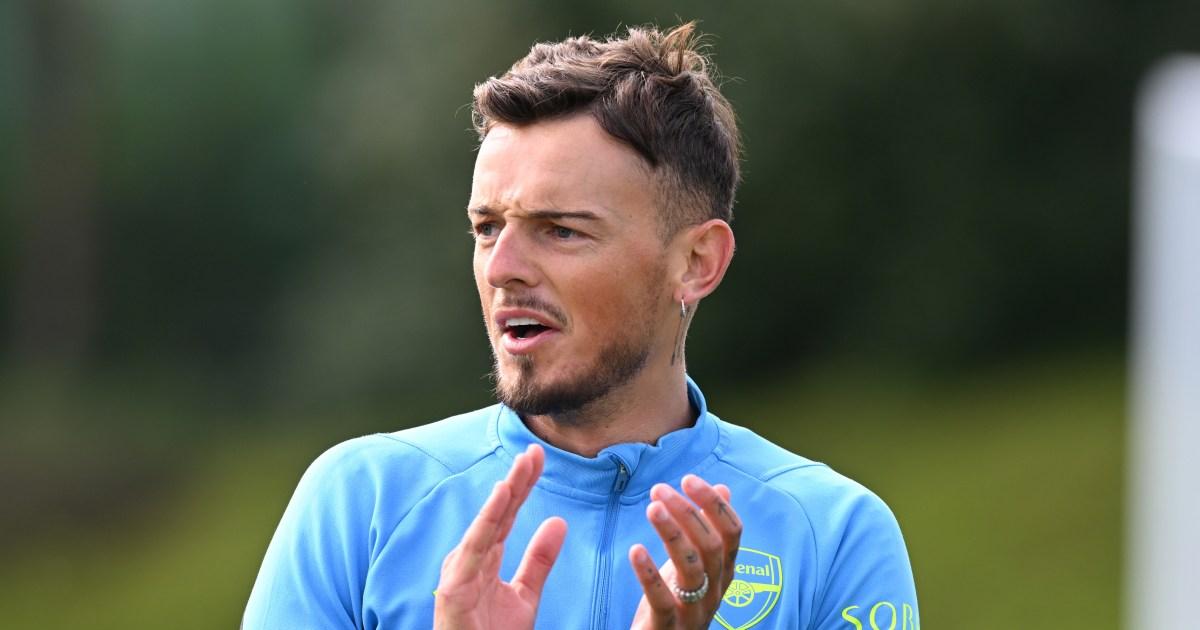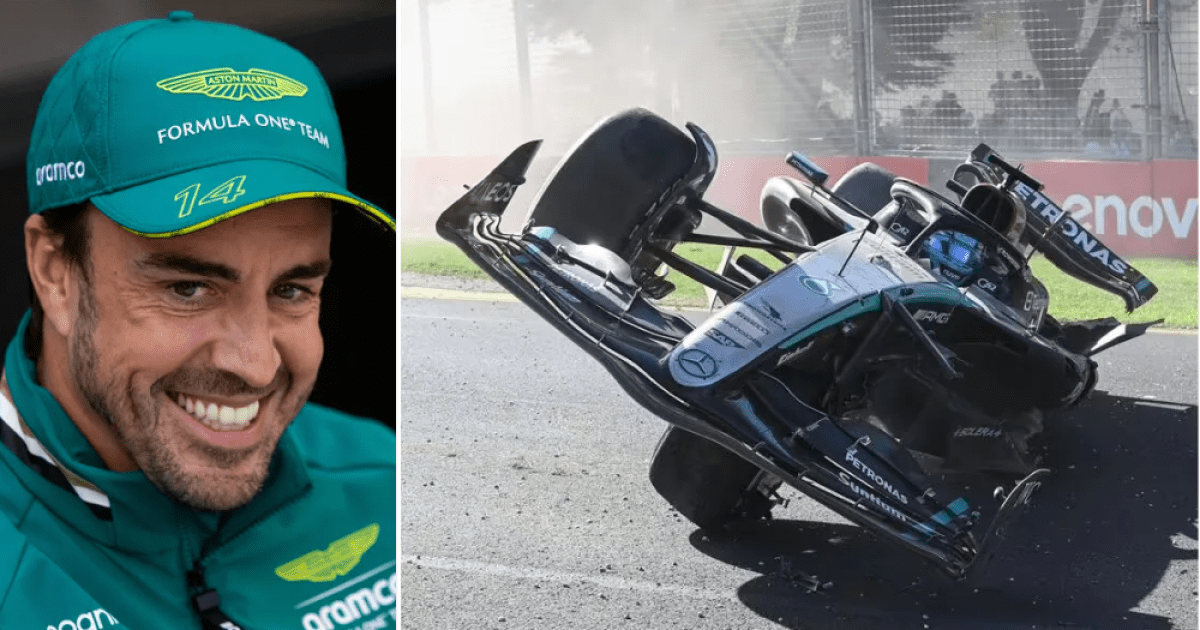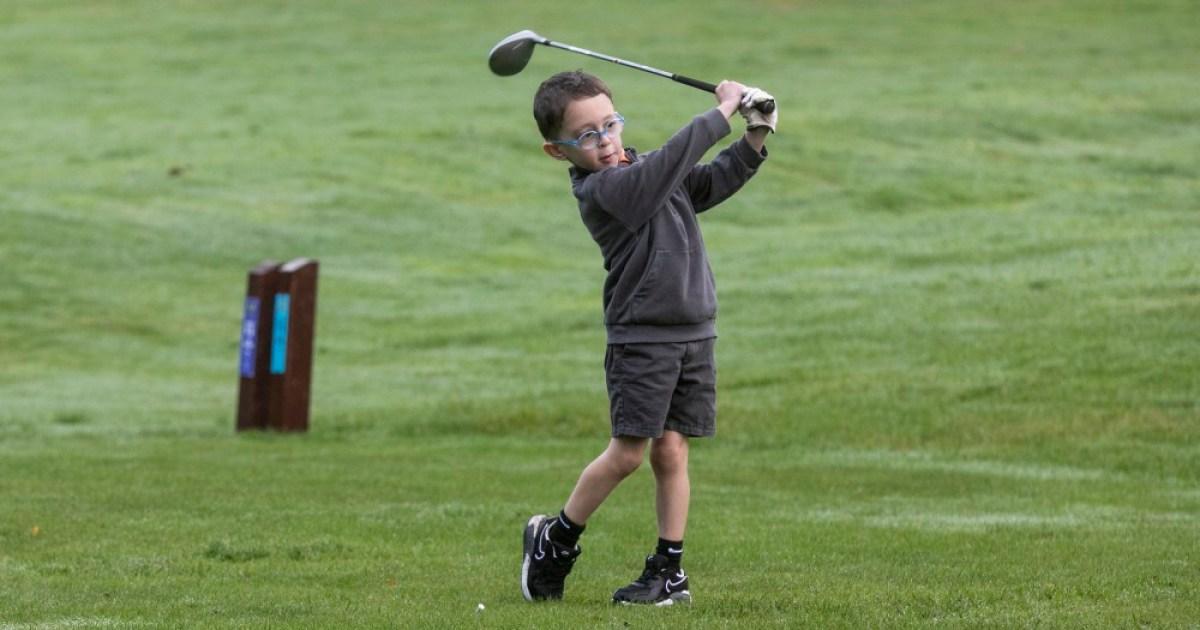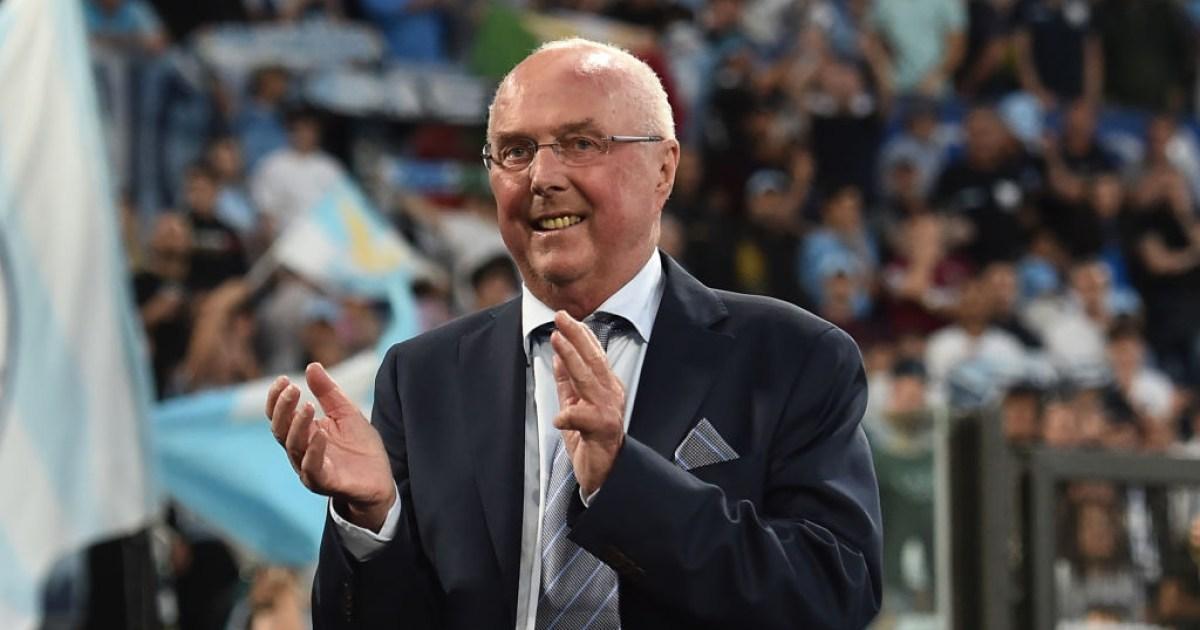
Padel has exploded in popularity up and down the United Kingdom – but the remarkable rise of this racket sport has raised lots of questions and concerns.
There has been talk from some, including the legendary Novak Djokovic, that the sport of tennis is under serious threat. Others have claimed that padel is just a fad.
Critics have complained that it’s too loud, or too hard to get four people together – given that padel is mainly played in doubles – and the people who truly love it, like Jason Manford, are worried it’s in danger of lurching towards elitism.
Away from the world of comedy, Manford, a self-confessed padel addict who moved across from tennis after a shoulder injury, is on a personal mission to help grow this unique game. While this professional funny man may tell jokes for a living, when it comes to padel, he is nothing but serious.
Despite impressive growth, though, Great Britain failed to enter a team at the last world youth championships. Meanwhile, the founder of a new club in London vows he’s learnt from the key mistakes made in his home country of Sweden.
With plenty to unpack, and Manford’s ‘dream’ for Brisbane 2032, Metro took a deep dive into the curious world of padel. Here’s what we found…
Is the rise of padel a genuine threat to tennis?

Earlier this year, Djokovic warned that club tennis is ‘endangered’ amid the growing popularity of alternatives such as padel in Europe and pickleball in the United States.
There’s some truth in that. If you are of a certain age, and have suffered injuries, then padel may make more sense to you than tennis. It has a less strenuous impact on the body, a smaller court and it’s easier to play. Plus, new clubs are popping up everywhere.
What is padel and where did it come from?
Padel was invented by Enrique Corcuera in Acapulco, Mexico. It has since spread across the globe to Europe, South America and Australia. It is particularly huge in Spain and has become their second-most-popular sport.
It’s a racket game that combines elements of tennis, squash and badminton. It is most commonly played in doubles – with walled courts – about a third the size of a tennis court. Players use solid rackets, without strings, and serve underarm. The scoring system is the same as in tennis.

‘For a lot of my mates, who are in their 50s and want to be active but can’t afford to break their ankles, it’s perfect,’ Manford told Metro. ‘I injured my rotator cuff on my left shoulder. I’m left-handed. So serving was just killing me, it was so painful.
‘If you’re 60, you’re probably not going to pick up a tennis racket now. Whereas you could quite easily pick up a padel racket and play.’
Samuel De Haan, the founder of Square One Padel in Kent, said: ‘If you’re 50, 60+, we have a lot of members at our club who have come from tennis purely because they’re getting injured. They’re struggling with hip pain, back pain, playing on a big court and struggling to move around it.’

How much does a padel racket cost?
Padel rackets massively vary in price, depending on the quality and brand.
Decathlon UK currently has a Babolat racket for sale at £49.99. There is a slightly cheaper Kuikma racket listed at £29.99.
Adidas, meanwhile, are selling their top-end Metalbone 3.3 Padel Racket for £330 on their official website.
But the myth that padel is slowly going to take over and replace tennis is farfetched. If anything, it acts as an introduction to racket sports for most children.
‘We don’t see ourselves as competing with tennis,’ Sebastian Gordon, the founder of Rocket Padel at Battersea Power Station, said. ‘We’re competing with restaurants, cinemas, Netflix, yoga and CrossFit. The sport is social and it’s a low barrier to entry. It’s very easy to learn. I don’t really look at tennis and compare it.’
‘For a young kid, I think padel is a gateway to tennis and other racket sports,’ Manford added. ‘You can pick it up and play it straight away. And if you’re really good at it, you can start playing proper tennis! Then you can make some money and go pro or whatever. That’s how I see it, rather than being a rival to tennis.’

How quickly has padel grown in the UK?
The Lawn Tennis Association said in September: ‘Since becoming the national governing body for the sport in Britain in 2020, significant investment has already been directed towards developing and supporting padel in Britain.
‘In addition to private investment, the LTA and LTA Tennis Foundation have invested £6 million into 40 padel facility projects funding a total of 75 new courts, as well as the competition structure, performance support and coach development.
‘In total, since 2019 the number of courts has grown from 50 to 350, annual participation from 6,000 to 129,000, and the LTA has launched new coaching courses, as well as a performance pathway to support Britain’s best players.’
Is Padel in danger of becoming an elitist sport?

Manford, a proud Mancunian, is concerned about padel falling into the trap of elitism. Tennis has always had that reputation but padel is seen as more urban, more street and has taken off in traditionally working class areas like Manchester.
He has teamed up with the Lawn Tennis Association (LTA) and a number of other private investors to help install padel courts into schools in underprivileged areas. He’s also been in contact with the Mayor of Greater Manchester, Andy Burnham.
‘I can already foresee a problem,’ Manford said. ‘I just played this morning at this lovely club in Wilmslow. £11 quid each I think we all paid. Around £44 for the court in total. I’ve got my £250 racket. £100 trainers and my nice kit. All of a sudden, I’m walking around with £500 worth of stuff and I’m playing with three other people who also have the privilege of having a day off.
‘I’m already thinking, ‘Is this becoming elitist? Is this becoming a problem?’ – because everywhere else, it’s a people’s sport. It’s the opposite of tennis in that respect. Tennis is all-whites, the Royal Box, make sure you wear a tie at the club and all that. Padel is a bit more street, it’s a bit more urban.’
Manford, who has been playing padel with the likes of England footballer Jordan Pickford, has already experienced a number of obstacles with installing courts in schools. He needs to convince private investors that it’s worth their money. He also requires brands like Castore and Babolat to back his big ideas.
‘It’s an absolute ball****, to be perfectly honest,’ the comedian explained. ‘I thought it would be a doddle. Just the red tape of it. Who owns the land, who profits from the… Look, what I’m saying is, the only way to make this viable, is I’ll pay for three padel courts plus all the work that goes around it. You’re talking £150,000 for three courts on a school field.

‘A lot of these school grounds are massive and underused. The grass is either rock solid or soaking wet, unusable for four to five months a year. What I’m saying is, ‘Give me this land for free for 25 years and I’ll build you three padel courts, we’ll fence it all off so it becomes it’s own entity, you have access to it, they’re yours, the kids can use them for PE and lunchtime clubs and afterschool clubs’ – but then what we also do is rent them out on weekends, evenings and school holidays.
‘So they sort of end up paying for themselves over time. Hopefully what ends up happening then, the business model that I proposed, is that you could then invest in more padel courts in more schools. You’ll never run out of schools that need them. So once I’ve got one done… I’ve got five sites in mind.
‘I’ve been speaking to Andy Burnham’s office in Manchester and I’ve been speaking to the LTA and private investors. But what I’m trying to say to these investors is, ‘Don’t come asking for your money back in a years’ time’ – that’s not what this is. This is more about creating a legacy in padel, can we give underprivileged children an opportunity to play this brilliant sport?
Can we give underprivileged children an opportunity to play this brilliant sport?

‘You can’t just build a court and leave it. I’m speaking to Castore about clothing. I’m speaking to Babolat about rackets. I’ve been speaking to the LTA about up-skilling PE teachers. If we just build three courts and leave it, and the kids just play it in PE and never again, then you’ve failed.
‘These companies… I said to the guys at Babolat, I got a pair of Nikes when I was 10, I’m 43 now and I probably spend £700 a year on Nike trainers. So we all know from a company POV, if you can get a Castore t-shirt or a Babalot racket or whatever it is onto a kid at 10 or 11, they’re going to stick with that brand for a long time.
‘That’s what I’m telling these companies and telling them to get behind me. Help me get these kids to feel like this sport is for them and that it’s not elitist.’
The LTA’s plan to grow padel in the UK
From now until the end of 2026, the LTA plans to:
- Grow the visibility of padel to increase awareness from 20% to 40% of the population, interest in playing from 7.5% to 15% and boost participation
- Increase the number of annual padel players from 129,000 to 400,000, and monthly players from 65,000 to 200,000
- Increase the number of padel courts from 350 to 1000
- Grow the padel coach and activator workforce from 40 to 700
- Enable 10 players to break into the top 200 and two players into the top 100 and inspire the padel audience
The LTA will also establish a new Padel Advisory Group (PAG) to help guide the development of the sport across Britain from 2025 onwards.
Jason Manford’s 2032 Olympic dream for padel

Manford has a padel dream. He wants Team GB competing in the sport at the 2032 Olympic Games in Brisbane.
It should be noted that padel is not currently an Olympic sport – and isn’t on the schedule for Los Angeles 2028 – but it could be included four years later if this global boom continues.
‘Can we look forward to the 2032 Brisbane Olympics, and could one of the kids that plays padel on one of those courts make it in eight years’ time and play for Team GB?’ Manford asked.
‘That would be the dream. From not entering a team in the youth world championships to eight years later having a team at the Olympics, that would be an incredible legacy.’
Why did Great Britain not have a team at the last world youth championships?
De Haan from Square One Padel says Great Britain is playing catch-up to the rest of Europe.
‘The LTA didn’t embrace it as early as they should have,’ he said. ‘Now they’re very in on the whole padel idea. I think they saw it as direct competition to tennis, so it was snubbed off to begin with.’
What lessons can be learnt from Sweden?

Padel has surged in popularity – but the UK must be careful to avoid the same mistakes seen in Sweden – where they overinvested and built too many courts.
Gordon, the Swede who just opened Rocket Padel in Battersea, explains how things went wrong in his home country and how Britain can avoid similar issues.
‘Padel sort of exploded in Sweden during Covid,’ Gordon said. ‘It was one of the few sports you were allowed to play with fishing and golf. And golf isn’t so easy in Sweden with the weather! We opened up a few other clubs, the market then got oversaturated in Sweden, so we learned a lot from that.

‘Given the population, we built 4000 courts over two years, that was too much. But if you look at the sport today… The ones situated in the right places are full. So they are doing pretty good.
‘To come back to the learning, one of the main things we’re doing here in the UK… that I can sort of take advantage of with everything wrong I’ve done myself and that I’ve seen others do wrong… one of the main things is that we’re focusing a lot on activities and to build from the ground up with a foundation in a youth academy, activating box leagues and getting people to compete so they feel they keep developing.
‘In Sweden, you could open a club and it would get full, but people [running them] got lazy. Most of the operators were fat cats. The clubs were full and they were making money, so they felt they didn’t need to do anything else.

‘The clubs in Sweden that survived and are doing good, those are the ones who opened pre-Covid who started early with kids, academies, running tournaments, social media, that helps too. A little bit more than just padel. It can be a bar, a restaurant, showing Premier League games or Formula One. Those are the clubs that are doing well.’
Is padel too loud and is it too hard to get four people for doubles?
The two most common complaints about padel is that the shots are too loud – sounding a little like gunfire – and that it’s too hard to get four people together for a doubles match. But the sport has moved quickly to address those concerns.
‘It is kind of noisy with outdoor courts,’ Gordon admits. ‘[But] at Rocket Padel, we are only opening indoor courts. We invest money and attention into using materials that are sound-reducing. At one of our clubs, we actually extended the wall to make it thicker and keep the sound inside.’
Meanwhile, the rise of a new app – Playtonic – has made it a lot easier for padel players to assemble for doubles matches.
‘We tackle issue that in our club with a WhatsApp group, and we also use the Playtonic app,’ De Haan added. ‘It’s really helped them get on court. People talk about it [being a problem] a lot – but a good booking system can combat that. We also do group playing sessions – beginners, intermediates for example – people come for 90 minutes and then they exchange phone numbers.’
MORE: ‘I just s*** myself’ – Olympic triathlete wins World Championship despite mid-race poo incident
MORE: Sir Chris Hoy and wife Sarra explain how they told children their devastating diagnoses
MORE: ‘There is hope’ – Sir Chris Hoy reveals target to live beyond his cancer diagnosis
